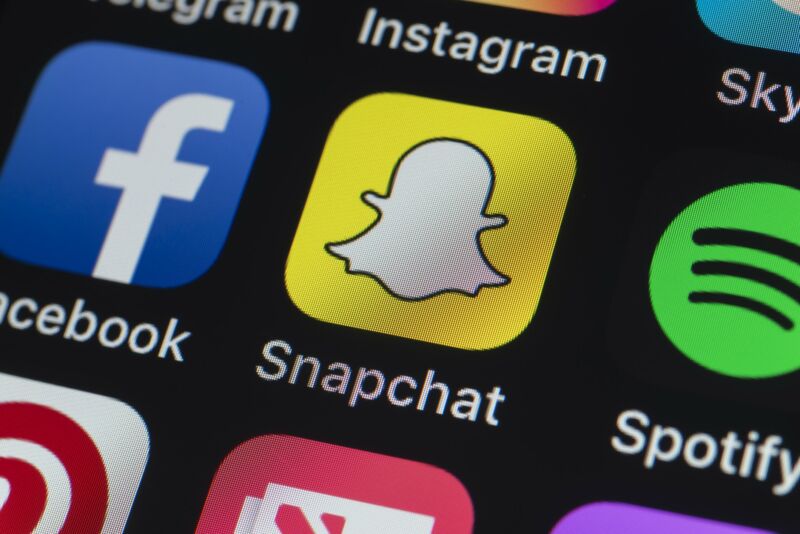
The Supreme Court today ruled in favor of a cheerleader and against the Pennsylvania high school that suspended her from the junior varsity team for a “vulgar” Snapchat post.
Brandi Levy was 14 in 2017 when she used Snapchat to express her frustration after failing to make the Mahanoy Area High School varsity cheerleading squad. Her Snapchat post contained an image of herself and a friend with middle fingers raised and the caption “Fuck school fuck softball fuck cheer fuck everything.” A second post she made also complained about the varsity squad’s decision but didn’t contain any profanity. The posts were not widely distributed: as the Supreme court noted, Snapchat is “a social media application for smartphones that allows users to share temporary images with selected friends.”
“B.L.’s posts expressed frustration with the school and the school’s cheerleading squad, and one contained vulgar language and gestures,” the ruling said. “When school officials learned of the posts, they suspended B.L. from the junior varsity cheerleading squad for the upcoming year.”
Levy and her parents sued the school district and won the case at both US District Court for the Middle District of Pennsylvania and at the US Court of Appeals for the 3rd Circuit. The school district appealed to the Supreme Court, which upheld the family’s victory.
“While public schools may have a special interest in regulating some off-campus student speech, the special interests offered by the school are not sufficient to overcome B.L.’s interest in free expression in this case,” the court said in today’s 8-1 ruling written by Justice Stephen Breyer. The school “violated B.L.’s First Amendment rights when it suspended her from the junior varsity cheerleading squad,” the majority decision also said. Justice Clarence Thomas filed a dissenting opinion.
Schools have limited ability to regulate off-campus speech
In a 1969 case, Tinker v. Des Moines Independent Community School Dist., the Supreme Court “indicated that schools have a special interest in regulating on-campus student speech that ‘materially disrupts class-work or involves substantial disorder or invasion of the rights of others,'” today’s ruling noted.
The district court relied on Tinker and “found that B.L.’s punishment violated the First Amendment because her Snapchat posts had not caused substantial disruption at the school” and “granted an injunction ordering the school to reinstate B.L. to the cheerleading team,” the Supreme Court said. While the 3rd Circuit appeals court affirmed the judgment, it also “reasoned that Tinker did not apply because schools had no special license to regulate student speech occurring off campus.”
The Supreme Court clarified today that “[t]he special characteristics that give schools additional license to regulate student speech do not always disappear when that speech takes place off campus. Circumstances that may implicate a school’s regulatory interests include serious or severe bullying or harassment targeting particular individuals; threats aimed at teachers or other students; the failure to follow rules concerning lessons, the writing of papers, the use of computers, or participation in other online school activities; and breaches of school security devices.”
But there are substantial limits on schools’ license to regulate off-campus speech, the Supreme Court wrote:
First, a school will rarely stand in loco parentis when a student speaks off campus. Second, from the student speaker’s perspective, regulations of off-campus speech, when coupled with regulations of on-campus speech, include all the speech a student utters during the full 24-hour day. That means courts must be more skeptical of a school’s efforts to regulate off-campus speech, for doing so may mean the student cannot engage in that kind of speech at all. Third, the school itself has an interest in protecting a student’s unpopular expression, especially when the expression takes place off campus, because America’s public schools are the nurseries of democracy. Taken together, these three features of much off-campus speech mean that the leeway the First Amendment grants to schools in light of their special characteristics is diminished.
Teen’s posts did not interfere with school
In the Levy case, the teen’s “posts are entitled to First Amendment protection” because they “reflect criticism of the rules of a community of which B. L. forms a part” and the “message did not involve features that would place it outside the First Amendment’s ordinary protection,” the Supreme Court wrote.
In addition to making her posts away from school and outside school hours, Levy “did not identify the school in her posts or target any member of the school community with vulgar or abusive language,” the justices wrote. She also “transmitted her speech through a personal cellphone, to an audience consisting of her private circle of Snapchat friends.”
The posts did not interfere with school in any significant way, the ruling said. “The school’s interest in preventing disruption is not supported by the record, which shows that discussion of the matter took, at most, 5 to 10 minutes of an Algebra class ‘for just a couple of days’ and that some members of the cheerleading team were ‘upset’ about the content of B. L.’s Snapchats. This alone does not satisfy Tinker’s demanding standards,” the court wrote. “Likewise, there is little to suggest a substantial interference in, or disruption of, the school’s efforts to maintain cohesion on the school cheerleading squad.”
Levy surprised “one simple snap” went to Supreme Court
Levy is now 18 and a freshman at Bloomsburg University, CNN wrote in an article today. Levy praised the Supreme Court’s decision in a statement quoted by CNN and other news organizations.
“The school went too far, and I’m glad that the Supreme Court agrees,” she said. “Young people need to have the ability to express themselves without worrying about being punished when they get to school. I never could have imagined that one simple snap would turn into a Supreme Court case, but I’m proud that my family and I advocated for the rights of millions of public school students.”
https://arstechnica.com/?p=1775810

